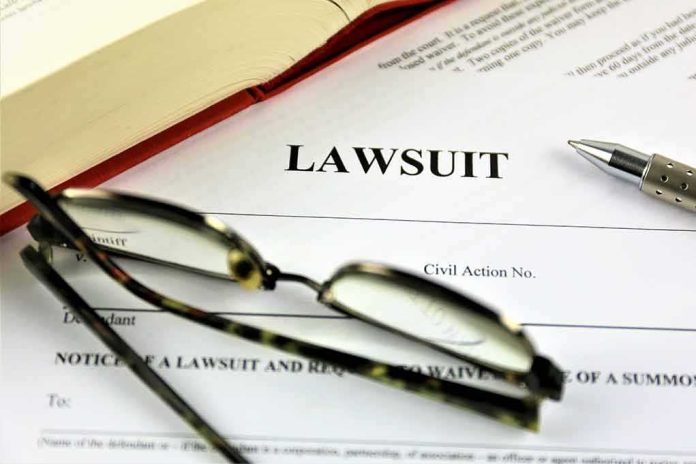
MIT faces a damning lawsuit as Jewish graduate student forced to abandon Ph.D. studies due to unchecked antisemitism and professor’s alleged harassment campaign.
Key Takeaways
- MIT and linguistics professor Michel DeGraff are being sued for allegedly fostering a hostile environment of antisemitism that forced a Jewish Ph.D. student to withdraw from the program
- The lawsuit claims MIT President Sally Kornbluth failed to address escalating antisemitic incidents following the October 2023 Hamas attack on Israel
- A 71-page complaint details incidents including campus protests advocating violence against Jews, celebrations of the Hamas attack, and targeted harassment of Jewish students
- MIT allegedly violated Title VI of the Civil Rights Act of 1964 by allowing antisemitism to flourish without consequence
- The Brandeis Center, which previously won a settlement against Harvard, is representing the plaintiffs in seeking a jury trial
Elite Institution Accused of Enabling Antisemitic Culture
Massachusetts Institute of Technology is facing serious legal action as a Jewish graduate student and mathematics instructor have filed a lawsuit alleging the prestigious university allowed antisemitism to flourish unchecked on campus. The lawsuit, filed by the Louis D. Brandeis Center for Human Rights Under Law and White & Case LLP in the US District Court for the District of Massachusetts, presents a disturbing picture of one of America’s top academic institutions. The 71-page complaint details how antisemitic incidents escalated after the October 2023 Hamas attack on Israel, with the university administration allegedly turning a blind eye.
“In the absence of moral leadership and meaningful action, the MIT campus was turned into a breeding ground of anti-Semitic and anti-Israeli hate and hostility that emboldened students and professors to harass and discriminate against Jews and Israelis without restraint,” states the lawsuit filed against MIT.
The plaintiffs include former Ph.D. student William Sussman, who claims he was forced to abandon his academic pursuits due to targeted harassment, and mathematics instructor Lior Alon, who alleges he faced professional and personal threats. Both claim that MIT’s leadership, particularly President Sally Kornbluth, failed to intervene despite multiple reports of antisemitic behavior on campus, allowing a toxic environment to develop and thrive.
Professor’s Alleged Campaign of Harassment
At the center of the lawsuit is MIT linguistics professor Michel DeGraff, who is accused of leading a targeted harassment campaign against Jewish students and faculty. The complaint alleges that DeGraff engaged in doxxing, public shaming, and defamation of Jewish community members. In one particularly troubling case, DeGraff allegedly posted messages about William Sussman on social media, creating an environment so hostile that Sussman felt compelled to withdraw from his Ph.D. program altogether.
“Not only were several anti-Semitic incidents conducted at the hands of a professor, but MIT’s administration refused to take action on every single occasion. The very people who are tasked with protecting students are not only failing them, but are the ones attacking them,” said Kenneth Marcus, founder of the Louis D. Brandeis Center for Human Rights Under Law.
The lawsuit further claims that DeGraff targeted Dr. Lior Alon, an Israeli professor at MIT, through social media attacks that affected his professional opportunities and personal safety. Despite these serious allegations, an internal MIT investigation concluded that DeGraff’s actions did not constitute antisemitic conduct, a finding that the lawsuit sharply criticizes as evidence of the institution’s negligence.
Pattern of Institutional Negligence
The legal complaint paints a disturbing picture of institutional negligence at MIT, detailing how campus protests advocating violence against Jews, celebrations of the Hamas attack on Israel, and harassment of Jewish and Israeli students were allowed to continue without meaningful intervention. The plaintiffs allege that MIT violated Title VI of the Civil Rights Act of 1964 by failing to address the hostile environment that developed on campus.
“MIT administrators knowingly failed to take action to eliminate the hostile climate and discrimination against them or to stop the retaliation, in violation of Title VI of the Civil Rights Act of 1964. The Individual Plaintiffs were also subjected to outrageous and wrongful conduct that has resulted in severe emotional distress and extreme anxiety and anguish. The Individual Plaintiffs were also defamed by a MIT professor,” states the complaint filed in federal court.
The lawsuit comes in the wake of a successful settlement by the Brandeis Center against Harvard University, which led to that institution adopting the International Holocaust Remembrance Alliance definition of antisemitism. While MIT has reportedly removed DeGraff from the linguistics faculty and designated him as “faculty at large” due to his public attacks on the university, the plaintiffs argue this action falls far short of addressing the systemic problems at the institution.
Seeking Accountability and Reform
The plaintiffs are requesting a jury trial and seeking both accountability for past actions and comprehensive reforms to prevent future incidents. Kenneth Marcus of the Brandeis Center emphasized the importance of holding both faculty and administration responsible for their role in allowing antisemitism to flourish at MIT. The lawsuit represents a significant challenge to the culture at elite academic institutions that have faced increasing scrutiny for their handling of antisemitism.
“In order to eradicate hate from campuses, we must hold faculty and the university administration responsible for their participation in —and in this case, their proliferation of — anti-Semitism and abuse,” said Kenneth Marcus, founder of the Louis D. Brandeis Center for Human Rights Under Law.
Founded in 2011, the Brandeis Center has established a track record of successful civil rights cases against universities, suggesting this lawsuit against MIT could have far-reaching implications for how academic institutions address antisemitism on their campuses. As the case moves forward, it will likely force a national conversation about the responsibilities of universities to protect all students from discrimination and harassment.







